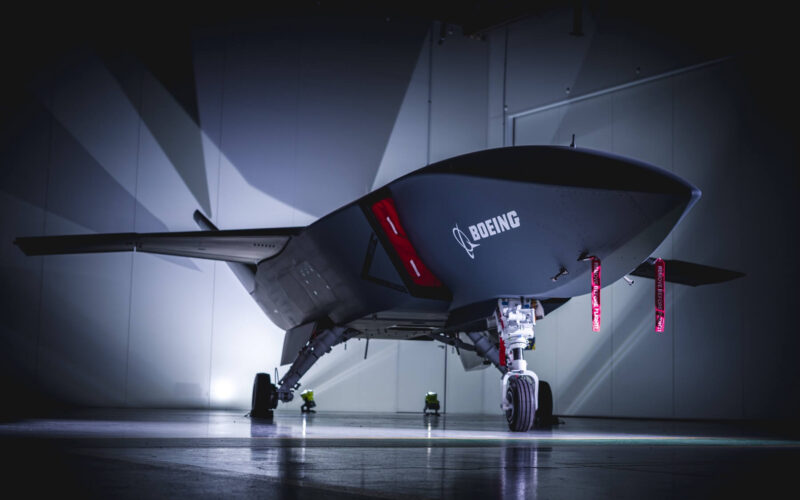Boeing presented to the Royal Australian Air Force the first prototype of unmanned fighter aircraft developed in the country and designed to fly in combat formation alongside manned aircraft.
“This is a truly historic moment for our country and for Australian defence innovation,” said Scott Morrison, Prime Minister of Australia. “The Loyal Wingman will be pivotal to exploring the critical capabilities our Air Force needs to protect our nation and its allies into the future.”
It is the first of three prototypes of the Australian Loyal Wingman Advanced Development Program. While the exact cost is unknown, the project is the most expensive investment of Boeing outside of the United States.
The chassis had been assembled and put on wheels on April 9, 2020. The maiden flight is expected to take place before the end of 2020.
The 11.7-meter (38-foot) long unmanned aerial vehicle known as the Airpower Teaming System would be capable of providing fighter-like performance. Its range will be over 3,700 kilometers (2,000 nautical miles). While the armament has yet to be unveiled, it is already known that its missions will cover intelligence support, surveillance, and reconnaissance as well as electronic warfare.
Thanks to artificial intelligence, it should be able to fly both autonomously or in support of other manned or unmanned aircraft, in swarms of four to six units. It could thus be integrated into a “system of systems”, one of the most sought after features of the upcoming generation of fighter jets.
On the other side of the Pacific Ocean, a similar concept is being developed for the United States Air Force by the company Kratos Defense & Security Solutions: the XQ-58A Valkyrie. It commenced its flight test campaign in March 2019.
Similarly, Airbus and MBDA are collaborating on a “Remote Carrier” that should assist the upcoming European fighter jet developed by France, Germany and Spain. During the Paris Air Show 2019, the RC-100 and RC-200, weighing respectively 100kg and 200kg, were presented as capable of participating in an operation by designating targets or scrambling the enemy defense systems, before hitting their target.
As a cheaper solution to manned fighter jets, these new wingmen open up a huge array of possibilities for air operations in the coming decades.

